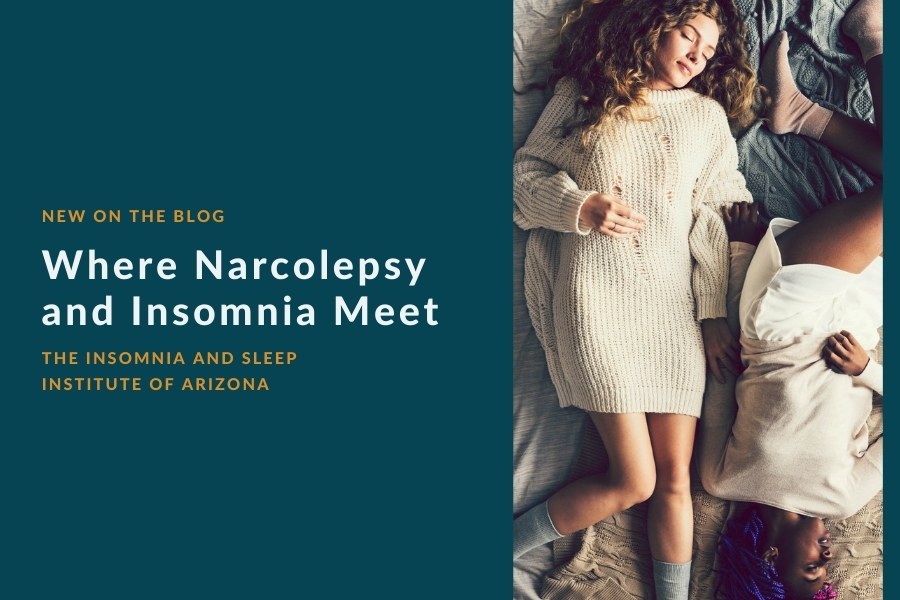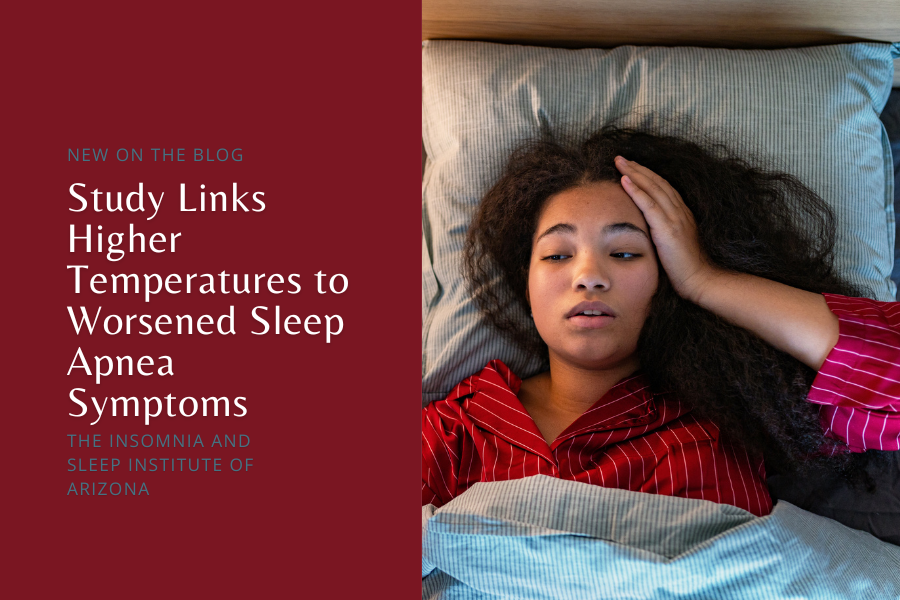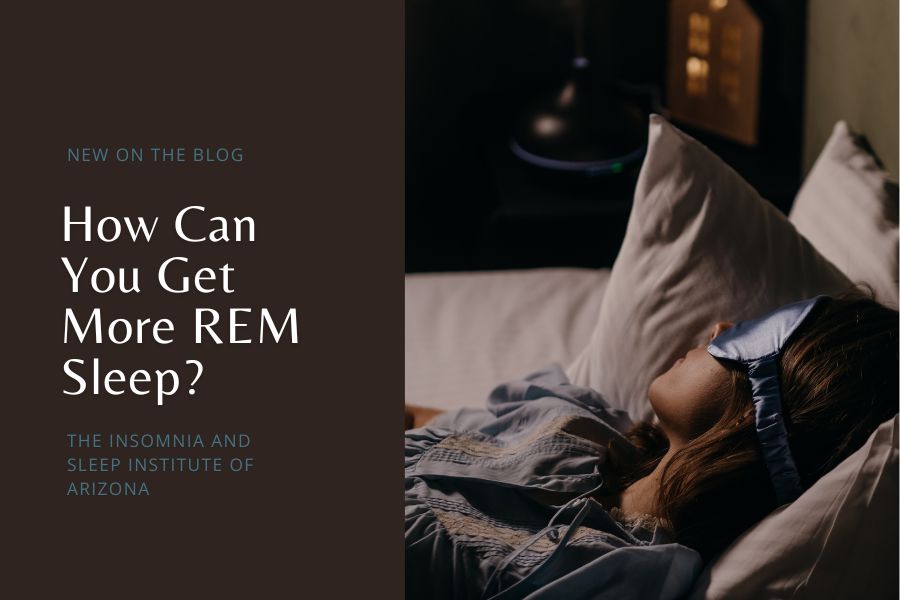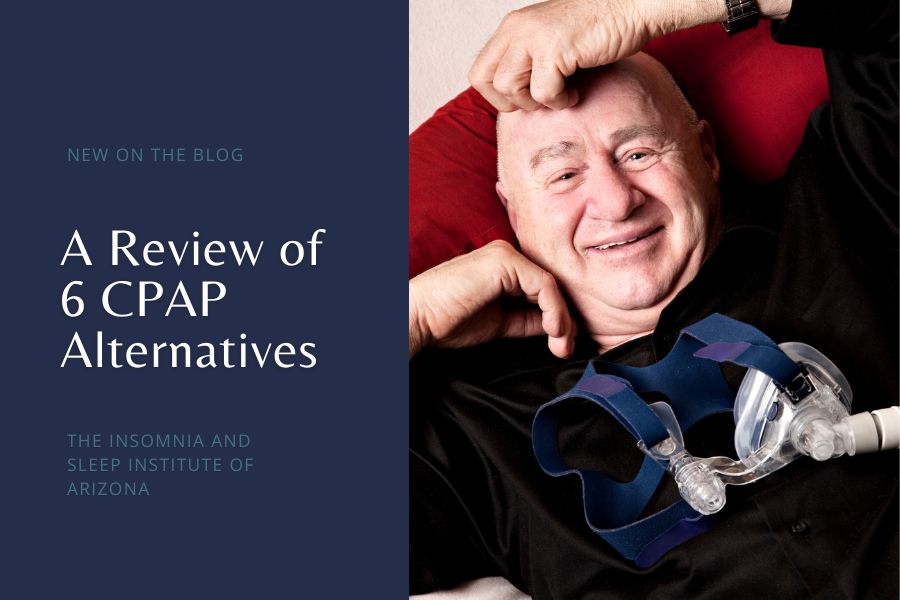Hundreds of thousands of people have an undiagnosed sleep disorder and many experience a comorbidity, such as insomnia and narcolepsy. The Insomnia and Sleep Institute of Arizona is staffed by sleep specialists concentrating in sleep medicine, and you do not need a referral from your GP to schedule your consultation with a sleep expert who can diagnose disorders. This is the first step in an outcome-driven approach that lets you receive the right diagnosis (or diagnoses), which informs testing and treatment if necessary.
It is not uncommon for a person to have a myriad of sleep disorders, particularly when some have commonalities. For example, both narcolepsy and insomnia involve the orexin chemical messenger. This is a peptide that helps to activate areas of the brain that encourage wakefulness. However, insomnia and narcolepsy are very different sleep disorders, even though they can occur simultaneously.
Narcolepsy
Those with narcolepsy often have less nerve cells producing orexin. On the other hand, those with insomnia might have an excess of orexin, or their orexin production might not be appropriately controlled. With too little orexin, a person is overly sleepy and with too much it can be difficult to fall or stay asleep. The intersection of these two disorders is further intermingled because insomnia might be a symptom of narcolepsy rather than a sleep disorder that is occurring totally independent of other disorders. It is easy to see why it can be difficult to receive a correct diagnosis by someone who is not a sleep specialist.
It can be surprising to learn that those with narcolepsy (often presenting with extreme tiredness during the day) also struggles with trouble staying asleep at night. The media does not help with this, routinely portraying narcolepsy in extreme and/or simply incorrect representations. Plus, there may be even more sleep disorders occurring, such as sleep apnea (of which millions of people suffer and up to 90 percent are undiagnosed).
Symptoms of Narcolepsy and Insomnia
There are many symptoms that may present with both narcolepsy and insomnia, and some are shared. This can include trouble concentrating and properly functioning throughout the day. However, narcolepsy is quite rare. It is a long-term condition of the brain and can lead to cataplexy (a short-term loss of muscular control). Cataplexy is usually triggered by strong emotions, positive or negative. Narcolepsy can often lead to very vivid dreams (hypnagogic hallucinations) when falling asleep and while waking up.
Narcolepsy is often paired with sleep paralysis, which is technically harmless but can be disconcerting when a person can’t talk or move when waking up or falling asleep. Those with narcolepsy tend to initially fall asleep quickly, but wake up throughout the night and struggle at that point to fall back asleep. On the other hand, those with “just” insomnia cannot easily initially fall asleep—and they often wake up throughout the night or too early. Insomnia can lead to feeling tired even after what seemed to be a full night’s sleep. This understandably can lead to subpar performance during the day.
Treatment for Narcolepsy and Insomnia
Treatment for these two conditions can be quite different with cognitive behavior therapy for Insomnia (CBT-I) and sleep hygiene best practices being two common and effective approaches. However, bear in mind that narcolepsy has no “cure,” but there are various ways to treat symptoms. Narcolepsy is a brain-related condition, but there are many potential causes of insomnia. Understanding the root cause(s) of insomnia following a correct diagnosis is the next critical step. Sometimes insomnia is temporary and there is a clear cause (such as jet lag), other times it might be caused by environmental factors, medications, changes such as menopause, or a host of other possibilities.
If you suspect you have narcolepsy, insomnia, or any other sleep disorder, only a sleep specialist should be trusted to provide a diagnosis. We work with patients as young as two years old and are proud to serve as the Face of Sleep Medicine in the Phoenix area. Sleep disorders can negatively impact every part of your life, and help is available. Connect with The Insomnia and Sleep Institute today to get started on your journey of better sleep. Simply call the office or, for the quickest response, complete the online contact form right now.








